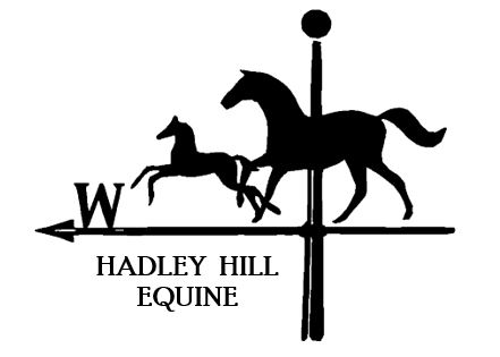Vaccinations
Horses should be vaccinated on a yearly basis for a variety of transmissible diseases.
We utilize the Boehringer Ingelheim vaccine line to protect our patients, see more below regarding their specific vaccine line.
Vetera vaccine: EEE, WEE, Tetanus, WNV
Vetera Gold vaccine: EEE, WEE, Tetanus, WNV, Flu/Rhino
Diseases Vaccinated Against
Please note, there are other diseases that can be vaccinated against, please consult with a veterinarian to create the best vaccine schedule for your horse.
EEE- Eastern Equine Encephalitis & WEE- Western Equine Encephalitis
Both WEE and EEE are mosquito-transmitted viral based neurologic diseases that are generally very severe and have a high fatality rate. They may exhibit symptoms such as fever, lethargy, weakness, and neurological signs including ataxia (loss of coordination), circling, and paralysis. In severe cases, EEE /WEE can lead to death. Annual revaccination should be done prior to mosquito season in the spring.
WNV- West Nile Virus
West Nile virus is transmitted by mosquitoes and can cause serious neurological illness in horses. Vaccinate annually before mosquito season to maximize protection.
T- Tetanus
Tetanus is caused by the toxin of the bacteria Clostridium tetani. The bacteria lives in the soil and most animals contract it via wounds. The toxin causes severe body-wide muscle contractions. Most horses that develop tetanus require euthanasia. Horses should be vaccinated annually. Horses that sustain a wound or surgery 6 or more months after their previous tetanus booster should be revaccinated with tetanus toxoid immediately at the time of injury or surgery.
Note: The severity of the wound does not predict the risk for development of tetanus. Superficial wounds have resulted in clinical tetanus in horses.
Flu- Equine Influenza
Equine influenza is a highly contagious respiratory disease that is spread through respiratory droplets, direct contact with infected horses, or contaminated objects (e.g., buckets, tack). This is recommended for all horses that leave the farm, those traveling to shows/rodeos or events where horses co-mingle. Horses who travel or are housed at a facility where other horses travel should be revaccinated at 6-month intervals.
Rhino- Equine Herpes Virus 1 & 4
Each variant can cause respiratory infections. Symptoms include fever, lethargy, nasal discharge, cough, and anorexia. EHV-1 can cause abortion in mares, birth of foals that are weak and nonviable, or neurologic disease secondary to vasculitis of the spinal cord and brain.
It is recommended that the following horses be revaccinated at 6-month intervals:
+Horses less than 5 years of age.
+Horses on breeding farms or in contact with pregnant mares.
+Horses housed at facilities with frequent equine movement on and off the premises, thus resulting in an increased risk of exposure.
Pregnant mares require more frequent vaccination at 5, 7, 9 months gestation.
It should be noted that no vaccine is available to prevent the neurologic form of EHV1. However, vaccination has been shown to decrease the spread of disease thereby decreasing risk to contract it.
Rabies
Rabies is a virus which is invariably fatal and has considerable public health significance. By the time a horse is diagnosed with Rabies often numerous people have been exposed, rabies is fatal in humans if proper prophylaxis is not provided. It is recommended that rabies vaccine be a core vaccine for all horses and should be given yearly.
PHF- Potomac Horse Fever
Potomac horse fever is a potentially severe gastrointestinal disease primarily caused by a bacteria spread through aquatic insects (mayflies, caddisflies, dragon flies). Clinical signs of PHF can include fever, loss of appetite, diarrhea (which may not develop initially), laminitis (founder), depression, and mild to severe dehydration. If not treated promptly PHF can result in severe laminitis or even death. The vaccine cannot fully prevent PHF, however in our experience if a vaccinated horse becomes sick with Potomac, they often do not become as sick, tend to recover quicker, and have lower risk of developing complications from PHF. We recommend vaccinating annually in late spring/early summer and again 3 months after the first dose especially in endemic areas.
